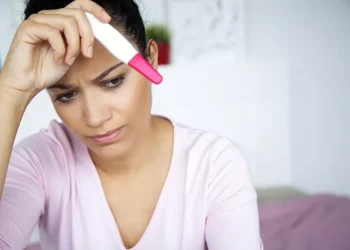Soy has been a dietary staple in many cultures for centuries. Recently, it has gained popularity in the Western diet due to its potential health benefits. However, concerns have emerged about its impact on female fertility. This article explores the relationship between soy consumption and female infertility, examining scientific evidence, potential mechanisms, and practical considerations.
Understanding Soy and Its Components
What is Soy?
Soy is a legume native to East Asia. It is used in various forms, including soybeans, tofu, tempeh, soy milk, and soy protein isolate. Soy products are rich in protein, fiber, vitamins, and minerals, making them a nutritious addition to the diet.
Phytoestrogens in Soy
A key component of soy is phytoestrogens, specifically isoflavones. Phytoestrogens are plant-derived compounds that can mimic the hormone estrogen in the body. The primary isoflavones in soy are genistein and daidzein. These compounds can bind to estrogen receptors, potentially influencing hormonal balance and reproductive functions.
See Also: Do You Know How Stis Can Lead to Infertility?
The Debate: Soy and Female Infertility
Concerns about Soy and Fertility
The concern over soy and fertility centers on its phytoestrogen content. Since phytoestrogens can mimic estrogen, there is worry that they might disrupt the endocrine system, affecting menstrual cycles, ovulation, and overall fertility.
Scientific Studies on Soy and Female Fertility
Animal Studies
Animal studies have provided mixed results on the effects of soy and isoflavones on fertility. Some studies in rodents suggest that high doses of isoflavones can disrupt the estrous cycle and reduce fertility. However, these studies often use doses much higher than what humans typically consume.
Human Studies
Human studies offer more relevant insights but also show mixed results:
- Positive and Neutral Findings: Some studies suggest that moderate soy consumption does not negatively impact fertility. For instance, a study published in the American Journal of Clinical Nutrition found no significant association between soy intake and reduced fertility in women undergoing fertility treatment. Another study indicated that soy might even have a protective effect against ovulatory disorders.
- Negative Findings: Conversely, some research indicates potential negative effects. A study in the Journal of Nutrition found that high soy intake might be associated with longer menstrual cycles and altered hormone levels, which could potentially affect fertility.
Meta-Analyses and Reviews
Several meta-analyses and reviews have attempted to synthesize these findings. Generally, they conclude that moderate soy consumption does not significantly harm fertility. However, the results emphasize the need for more comprehensive, long-term studies to understand the relationship fully.
Mechanisms of Action
How Phytoestrogens Affect Hormones
Phytoestrogens can interact with estrogen receptors in the body, exerting either estrogenic or anti-estrogenic effects depending on the context. This interaction can influence the hypothalamic-pituitary-gonadal (HPG) axis, which regulates reproductive hormones.
Impact on the Menstrual Cycle
Alterations in hormone levels due to phytoestrogen consumption might affect the menstrual cycle. Changes in cycle length, menstrual regularity, and ovulation could potentially result from high intake of phytoestrogens.
Endometrial Receptivity
For successful implantation of an embryo, the endometrium (the lining of the uterus) must be receptive. Some studies suggest that phytoestrogens might alter endometrial receptivity, potentially affecting fertility.
Factors Influencing Soy’s Impact on Fertility
Dosage and Frequency
The effects of soy on fertility may depend on the amount and frequency of consumption. Most studies suggest that moderate consumption is unlikely to harm fertility, while high doses, especially in supplement form, could pose risks.
Individual Differences
Individual responses to soy can vary based on genetic factors, overall diet, and hormonal status. Some women might be more sensitive to phytoestrogens than others, influencing how soy affects their fertility.
Form of Soy
The form in which soy is consumed also matters. Whole soy foods, such as tofu and tempeh, contain a complex mix of nutrients and isoflavones, while soy protein isolates and supplements might deliver higher concentrations of isoflavones without the beneficial nutrients.
Practical Recommendations
Moderation is Key
Given the current evidence, moderate soy consumption is generally considered safe for most women. Incorporating soy as part of a balanced diet, without relying excessively on soy supplements, can help minimize potential risks.
Diverse Diet
A diverse diet that includes a variety of protein sources—both plant and animal—can provide balanced nutrition and reduce the reliance on any single food source. This approach helps mitigate the risk of any negative effects associated with high soy consumption.
Monitoring and Consultation
Women concerned about their fertility should monitor their menstrual cycles and consult healthcare providers if they notice significant changes. A healthcare provider can offer personalized advice based on individual health status and dietary habits.
Case Studies and Real-Life Examples
Case Study 1: Moderate Soy Consumption
A 30-year-old woman consuming moderate amounts of soy (e.g., one serving of tofu or soy milk daily) reported regular menstrual cycles and no fertility issues. She followed a balanced diet and maintained a healthy lifestyle.
Case Study 2: High Soy Intake
A 28-year-old woman, a vegan, consumed large amounts of soy protein isolates as part of her diet. She experienced irregular menstrual cycles and sought medical advice. Upon reducing her soy intake and incorporating a wider variety of protein sources, her menstrual cycles normalized, and she successfully conceived.
Conclusion
The relationship between soy consumption and female infertility is complex and not fully understood. While high doses of soy isoflavones might pose risks, moderate consumption appears to be safe for most women. Individual responses can vary, highlighting the importance of a balanced diet and personalized healthcare. As research continues, women can make informed dietary choices by understanding the potential impacts of soy on their reproductive health.
Related Links:



























